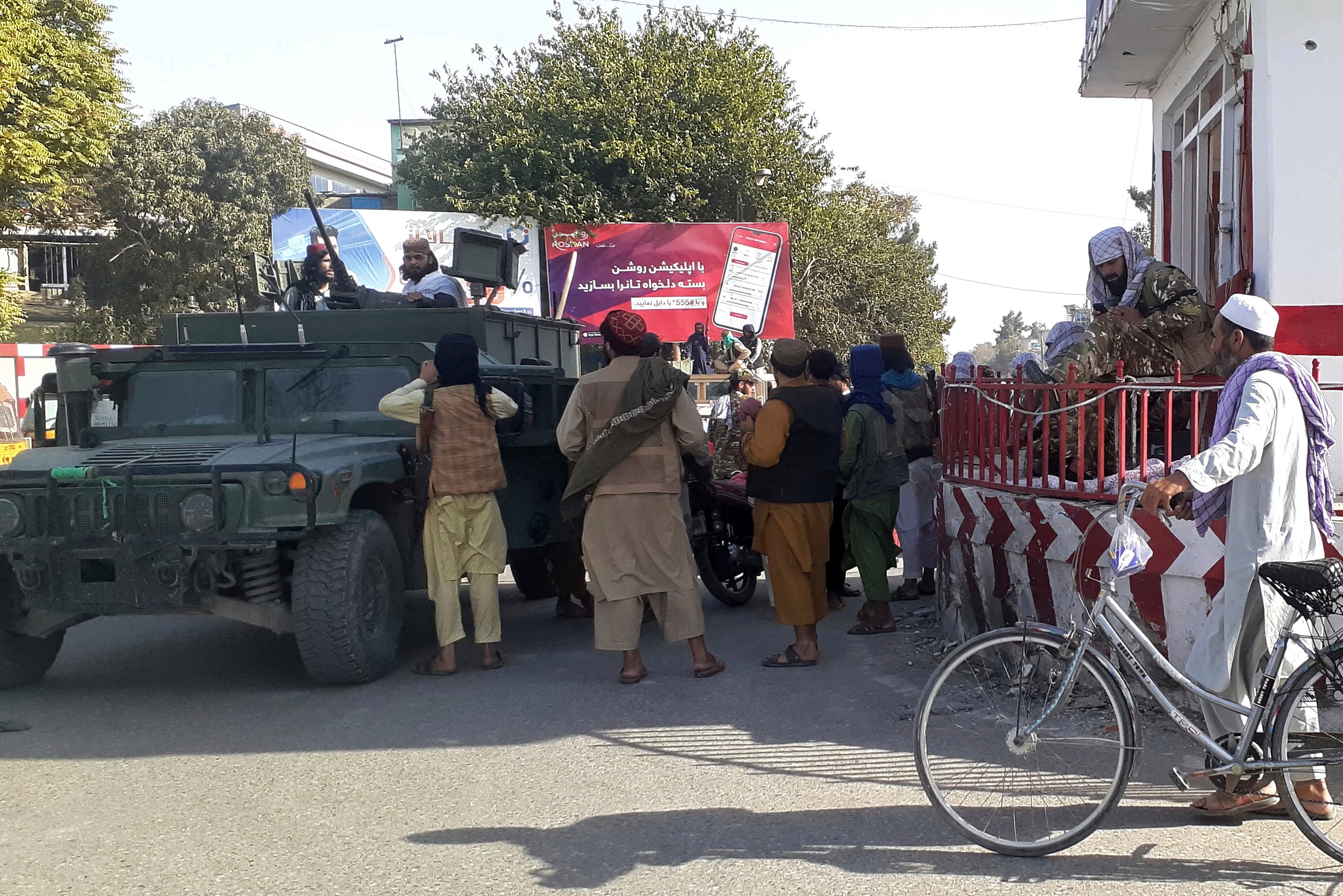Official: Protracted Afghan war Pakistan's worst nightmare
Pakistan's national security advisor says a protracted war in neighboring Afghanistan is Pakistan’s “nightmare scenario.”

Your support helps us to tell the story
From reproductive rights to climate change to Big Tech, The Independent is on the ground when the story is developing. Whether it's investigating the financials of Elon Musk's pro-Trump PAC or producing our latest documentary, 'The A Word', which shines a light on the American women fighting for reproductive rights, we know how important it is to parse out the facts from the messaging.
At such a critical moment in US history, we need reporters on the ground. Your donation allows us to keep sending journalists to speak to both sides of the story.
The Independent is trusted by Americans across the entire political spectrum. And unlike many other quality news outlets, we choose not to lock Americans out of our reporting and analysis with paywalls. We believe quality journalism should be available to everyone, paid for by those who can afford it.
Your support makes all the difference.A protracted war in neighboring Afghanistan is Pakistan s “nightmare scenario,” the country's national security advisor said Monday. He also slammed relentless blaming of Islamabad for the rapidly deteriorating security situation in Afghanistan.
The U.S. needs to take the lead to get the Afghan government and the Taliban back to the negotiation table, Moeed Yusuf told foreign journalists in the Pakistani capital.
He said Pakistan is pushing the Taliban to return to negotiations but its leverage is waning as the insurgent group gains more ground in Afghanistan.
Pakistan hasn't even been able to convince the Taliban to reopen the border crossing at Spin Boldak in southeastern Afghanistan, which the insurgent force captured last month, Yusuf said.
In their sweep through Afghanistan, which began with the late April start of the final withdrawal of U.S. and NATO troops, the Taliban have gained control of strategic and lucrative border crossings, including the Spin Boldak crossing with Pakistan.
Last weekend the Taliban closed the crossing in southeast Afghanistan after Islamabad demanded that Afghans crossing to the Pakistani side have a passport and a Pakistani visa, something that had not previously been required. The Taliban accused Pakistan of imposing the new rules to please Kabul and President Ashraf Ghani
They shuttered the border, insisting Pakistan reinstate an earlier lax policy under which the thousands who cross daily were rarely required to show even local identity cards. As a result, thousands of Afghans and Pakistanis are stuck at the border and hundreds of trucks loaded with perishable goods have been waiting to cross.
As the Aug. 31 deadline for the final withdrawal of U.S. and NATO troops from Afghanistan approaches, Yusuf called for “a reinvigorated, re-emphasized, rejuvenated effort to try and get Afghan political actors ... in one room ... to get to a settlement of how to move forward."
“Anything but an inclusive political settlement means a protracted conflict, through which instability will likely spill over into Pakistan,” he said. “So our nightmare scenario is a protracted conflict."
Yusuf said Pakistan, which already hosts about 2 million Afghan refugees, hasn't got the resources to absorb a fresh wave of refugees. The government fears that will happen if fighting continues and the sides don't return to the negotiating table.
The Taliban's onslaught defies statements by their political leadership in the Middle Eastern country Qatar advocating for talks. The insurgent force has shown no sign of wanting to negotiate, instead pressing ahead on the battlefield, sweeping through five provincial capitals in less than a week.
Yusuf accused Afghanistan of scapegoating Pakistan, blaming it for the Taliban advances and demanded evidence of accusations by Kabul at a recent U.N. Security Council meeting that 10,000 fighters were crossing from Pakistan to Afghanistan.
Instead he attacked the performance of Afghanistan's National Defense and Security Forces in those areas where they abandoned districts, occasionally crossing into Tajikistan or Iran or Pakistan to escape the advancing Taliban.
“We are told that over a trillion dollars were put into Afghanistan and much of that into the ANDSF to prepare the army and the security forces. ... What is going on with this well-equipped and trained force?”